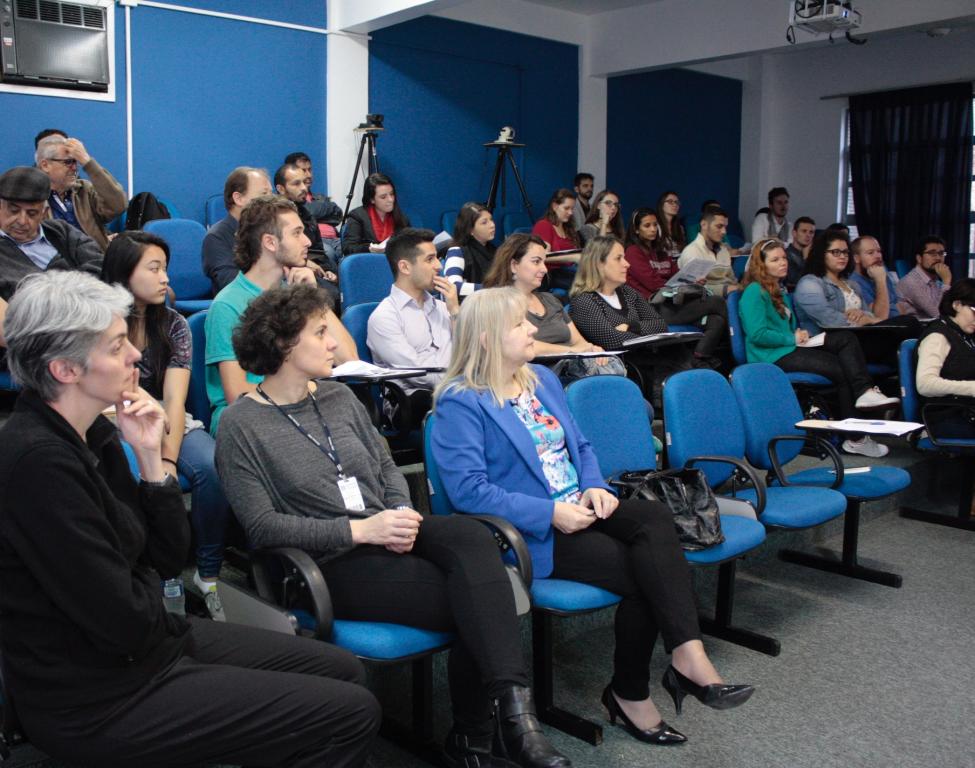Life Below Water Discussed During the III Cycle of Studies on the SDGs Organized by CIFAL Curitiba
 7 June 2017, Curitiba, Brazil – As part of the III Cycle of Studies on the Sustainable Development Goals (SDGs) organized by the International Training Centre for Authorities and Leaders in Curitiba (CIFAL Curitiba) to provide a venue to discuss innovative ways to advance the SDGs, the fourth workshop focusing on SDG 14 “The Sustainable use of Oceans, Seas and Marine Resources for Sustainable Development” took place on 7 June in Curitiba.
7 June 2017, Curitiba, Brazil – As part of the III Cycle of Studies on the Sustainable Development Goals (SDGs) organized by the International Training Centre for Authorities and Leaders in Curitiba (CIFAL Curitiba) to provide a venue to discuss innovative ways to advance the SDGs, the fourth workshop focusing on SDG 14 “The Sustainable use of Oceans, Seas and Marine Resources for Sustainable Development” took place on 7 June in Curitiba.
The workshop was organized in partnership with the Social Service for Industry in Parana (SESI - PR) and its Faculty of Industry, the Federal University of Parana (UFPR) and the Information Company of Parana (Celepar) to facilitate a dialogue on the sustainable use and preservation of marine and coastal ecosystems, as well as to raise awareness on the importance of biological diversity to achieving the 2030 Agenda, in particular for small island developing states.
Ms. Dira Viera, Coordinator of the Research and Indicators Section of SESI PR highlighted the essential role that coastal and marine resources play in human well-being and social and economic development worldwide. Oceans provide livelihoods and tourism benefits, as well as subsistence and income. They also help regulate the global ecosystem by absorbing heat and carbon dioxide from the atmosphere and protecting coastal areas from flooding and erosion. Coastal and marine resources contribute an estimated $28 trillion to the global economy each year through ecosystem services.
Researcher Ms. Daiana Bezerra who has been working for over eight years in the Project “Giant Tortoise/Sao Paulo” reflected on the need of protecting marine resources such as tortoises from solid waste and pollution. She stressed that biodiverse marine sites require safeguarding to ensure sustainable long-term use of their precious natural resources.
Professor Paulo de Tarso from the Federal University of Parana focused on Target 14.6.1 about the implementation of international instruments aiming to combat illegal, unreported and unregulated fishing. At the same time, he highlighted that there is a need to assist small-scale artisanal fishers to access marine resources and markets.
The use of existing available research, individual commitment and multi-stakeholder actions were highlighted as key steps to reduce pollution in our oceans.
Photo 1: Participants of the workshop

